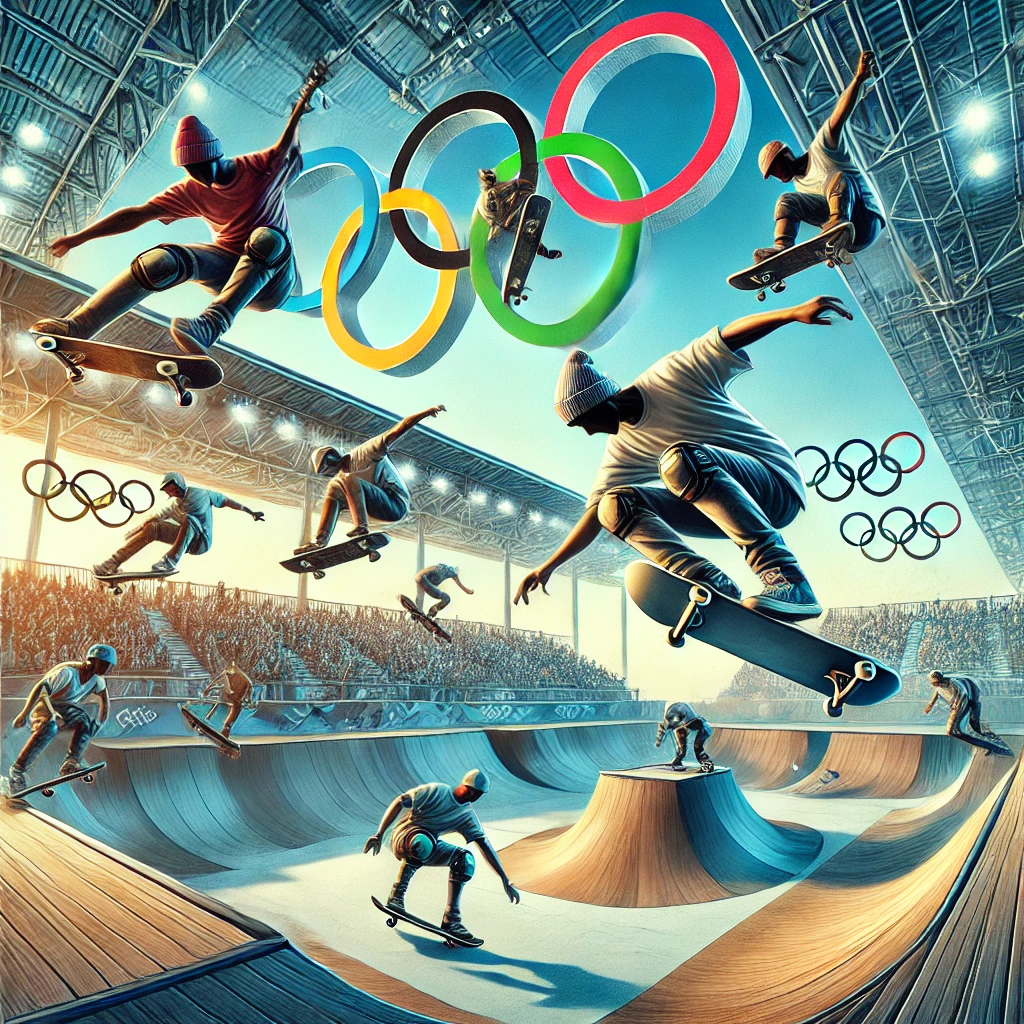Introduction
Skateboarding made its Olympic debut at the Tokyo 2020 Games, marking a significant milestone for the sport’s culture and its athletes. This inclusion reflects the evolving nature of the Olympic Games and highlights skateboarding’s global appeal and vibrant community.
History of Skateboarding
Origins and Evolution
Skateboarding began in the late 1940s and early 1950s when surfers in California wanted something to do when the waves were flat. This “sidewalk surfing” quickly evolved into a distinct culture with its own style, equipment, and techniques.
Skateboarding as a Competitive Sport
Over the decades, skateboarding grew from a pastime into a serious competitive sport, culminating in international competitions like the X Games. The push for Olympic inclusion began earnestly in the early 2000s, driven by a desire to showcase skateboarding to a wider global audience.
Skateboarding in the Olympics
Olympic Debut in Tokyo 2020
In 2016, the International Olympic Committee (IOC) announced that skateboarding would be included as an Olympic sport in Tokyo 2020. The event featured two disciplines: street and park.
Street Skateboarding
The street competition takes place on a course resembling a street-style environment with stairs, handrails, curbs, benches, walls, and slopes. Athletes perform a series of tricks and combinations judged on difficulty, originality, execution, and flow.
Park Skateboarding
Park skateboarding involves a hollowed-out course with a series of complicated curves—banked surfaces, bowls, and domes. Competitors are judged based on the same criteria as street skateboarding, with an added emphasis on amplitude and speed.
Impact on the Sport
The inclusion in the Olympics has brought more visibility and legitimacy to skateboarding, introducing it to a broader audience and potentially increasing global participation. It has also spurred discussions about the sport’s culture and its future direction.
Challenges and Controversies
Commercialization vs. Culture
As skateboarding enters the mainstream through the Olympics, there is ongoing debate within the community about maintaining its unique culture and identity amidst commercialization. Traditionalists worry about the sport losing its soul, while proponents of Olympic inclusion believe it can benefit the sport by bringing in more funding and exposure.
Judging and Standardization
The subjective nature of judging in skateboarding poses challenges, particularly in maintaining consistency and fairness in Olympic competition. Establishing standardized rules that satisfy both athletes and traditional fans remains a complex issue.
Future of Skateboarding in the Olympics
Paris 2024 and Beyond
Skateboarding is confirmed for the Paris 2024 Olympics and is likely to continue being a part of the Games due to its popularity and youth appeal. The sport’s governing bodies are focused on refining competition formats, enhancing judging systems, and ensuring that skateboarding retains its appeal both as an Olympic sport and a street-level pastime.
Conclusion
The inclusion of skateboarding in the Olympics represents a new chapter for the sport. It offers an incredible opportunity for athletes to showcase their skills on a global stage and for the sport to evolve while staying true to its roots. As skateboarding continues to navigate its identity within the Olympic framework, it holds the promise of inspiring a new generation to pick up a skateboard and contribute to its vibrant culture.


